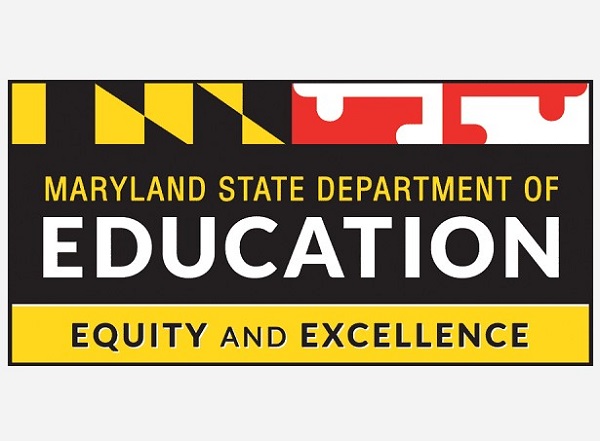BALTIMORE, MD—The Maryland State Department of Education (MSDE) announced today the nine recipients of the Maryland Works grant. MSDE awarded $12.2 million to six local education agencies (LEA) and three intermediaries. The awardees will use the funds to invest in foundational systems and processes needed to structure and sustain high-quality college and career pathways that are responsive to market demand. The end goal is to create long-term entities that can sustain industry-aligned apprenticeships beyond the life of this grant program.
Maryland Works is a highly competitive grant opportunity that leverages the remaining one-time, State set aside American Rescue Plan Elementary and Secondary School Relief Funds (ESSER III) to make a substantial investment in establishing an industry-aligned apprenticeship infrastructure for Maryland’s schools and business sectors. These programs reflect the national call to use one-time pandemic resources to ensure prekindergarten through grade 12 has direct pipelines to our most needed professions.
“The pandemic reminds us that change is here to stay. We must make sure we establish college and career pathways that are as nimble as the job market demands,” says State Superintendent of Schools Mohammed Choudhury. “It is our responsibility to set our students up for success beyond the classroom. These investments will serve as the catalyst for building the infrastructure necessary to launch and sustain strong and long-lasting apprenticeship programs that will support Maryland’s students now and for years to come.”
Reimagining college and career pathways for Maryland’s students requires transformational change to the systems that bolster the bridge from prekindergarten through grade 12 and beyond. Grants have been awarded for work focused on two high-leverage strategies:
- Designing and Developing an Infrastructure to Expand the Quality and Proliferation of Apprenticeship Programs
- Launching an Innovative Apprenticeship Intermediary for LEAs and Industry at Regional and Statewide Levels
Grant awardees have selected at least one of the strategies and provided a description of planned activities that align with the strategy and services that will be delivered, and the expected impact the work will have on Maryland’s youth apprenticeship programs.
“The education we provide students inside our classrooms is just one part of what it takes to be successful,” said Dr. Mark Bedell, Superintendent of Anne Arundel County Public Schools, one of the nine grant awardees. “The opportunity to apply theory in hands-on learning situations is critical to helping our students achieve their full potential and increase their ability to graduate with market value assets. Apprenticeships offer uniquely tailored experiences for students to hone, enhance, and expand their skill set and we are pleased to be a part of doing that through this program.”
The awardees are committed to supporting the development and implementation of systems to accelerate and sustain youth apprenticeship opportunities, particularly for historically underserved groups. Each of the awardees proposed plans address existing and persistent disparities in accessing apprenticeship programs and describe their obtainable, measurable impact on the number of students participating in apprenticeship programs.
“Baltimore’s Promise is excited to partner with Baltimore City Public Schools in creating the necessary resources and infrastructure to support students in their pursuit of meaningful career experiences through apprenticeships as they march toward their post-secondary dreams,” said Catherine Pitchford, the chief program officer for Baltimore’s Promise. “This will have a huge impact on Baltimore City youth.”
The Blueprint for Maryland’s Future requires the State to ensure that, by 2030-2031, 45% of high school graduates will have completed a registered apprenticeship program and received an industry-recognized credential. Maryland Works will set the tone and lay the groundwork for achieving this goal. For the participating LEA awardees, if the program achieves the success criteria identified in awarded LEA applications, the Maryland Works infrastructure should generate more than 3,000 new apprenticeship opportunities and result in the addition of more than 400 new businesses partnering with local education agencies. Maryland Works would effectively increase apprenticeship opportunities to 30 times the current number of participating students.
“Connecting our students to opportunities that will set them up for success after graduation is a critical pillar of the Blueprint for Maryland’s Future,” says State Board President Clarence C. Crawford. “The turning of a tassel is not the end of the journey, and the Maryland Works grant program will carve many more post-graduation pathways for our students, particularly those who have been historically underserved. It is a win-win. We are equipping our students with the skills to succeed, and we are providing business with a new generation of workers with competitive and specialized talents.”
The work begins with the following Maryland Works awardees:
Anne Arundel County Public Schools – $1,170,000
The funding will work to rapidly increase the number of registered apprentices in the district to 600 students. The method for growth will focus on four main action items: building a dedicated staff who focus exclusively on connecting students to apprenticeship opportunities; ensuring transportation is accessible for students to go to and from apprenticeship sites; bolstering resources to prepare all students for apprenticeships; and creating a robust marketing plan to increase awareness and viability of students and stakeholders.
Frederick County Public Schools – $699,752
The funding will be used to address two specific needs in Career and Technical Education. It will work to expand the number of registered youth apprenticeships available to students by attracting and retaining high-quality apprentice employers to meet the student demand. It will also work to build a pipeline to support the Child Development Associate (CDA) certification whereby high school students can earn their certification and be placed in instructional assistant positions upon graduation. The intended outcome will be to have at least 380 of the students graduating in May 2025 participate in registered youth apprenticeships leading to an industry-recognized certification.
Harford County Public Schools – $1,000,000
The funding will be focused on bolstering the district’s Apprenticeship Maryland Program programming by strengthening its infrastructure for sustainable apprenticeship opportunities. Efforts will include placing seven school-based apprenticeship specialists in high schools to support more than 7,000 students. It will also include a substantial investment in committed workforce partners to increase the enrollment capacity for students and provide a greater variety of apprenticeship opportunities to choose from. The intended outcome is to have 75 regional businesses confirmed as apprenticeship partners. This will enable the district to have at least 10 percent of students participating in apprenticeships across all high schools by 2025.
Howard County Public Schools – $1,176,915
The funding will work to significantly expand apprenticeship opportunities for students by strengthening the infrastructure of participating community business partnerships. The focus will be tailored to four priorities: improving communication by making businesses aware of apprenticeship opportunities as a viable option for the labor market and training the future workforce; removing access barriers by providing supports such as transportation to youth in underserved groups; increasing capacity to ensure they students are matched with their desired apprenticeships; and increasing student participation through rigorous engagement before, during, and after the apprenticeship program. These priorities are intended to increase the percentage of students meeting the apprenticeship requirements to 10 percent compared to the current 1 percent.
Montgomery County Public Schools – $1,224,442
The funding is aimed at creating centralized systems, structures, and district school staff to bring equitable apprenticeship opportunities to the large student population of more than 158,000 students. Each year, about 11,000 seniors graduate from this district and the intended outcome of the grant is to have at least 1,100 graduating students participating in youth apprenticeships by 2025. To reach this goal, the LEA will build apprenticeship pathways in traditional and non-traditional industry areas to reach more students and generate a pipeline of talent for employer partners. The focus will be on two areas, employer engagement and district and school capacity systems.
Prince George’s County Public Schools – $984,800
The funding will focus on expanding the district’s “school to work” model and building infrastructure for an apprenticeship ecosystem founded on evidence-based structures, processes, best practices, and relationships. The “school to work” model includes opportunities for apprenticeships with the Building Services Department in Carpentry, Electrical, HVAC, Masonry, and Plumbing trades. The LEA currently has around 8,000 graduates each year and will use the grant funding to place 800 apprentices by school year 2025 and 3,600 apprentices by school year 2030. To achieve this goal, the LEA will implement a database management system for managing and sustaining this model.
Baltimore’s Promise – $1,000,000
Funding for this regional intermediary in Baltimore City will be used to create the infrastructure for a registered youth apprenticeship ecosystem called CareerBound. The program enables an educational environment aligned with a strong workforce and social support ecosystem that advances an informed, diverse, and experienced workforce. It also connects them with family-supporting wages in high-demand career pathways. The program aims to have at least 400 Baltimore City seniors complete a registered youth apprenticeship and earn an industry-recognized certification by June 2025. The program will also work to ensure that all Baltimore City students are connected to career navigation and wraparound supports to increase post-secondary success and reduce barriers to career success such as academic, health, mental health, housing, transportation, etc.
Institute for American Apprenticeships – $999,850
Funding will bolster this regional/statewide intermediary’s efforts to implement non-traditional apprenticeship programs that address barriers to employment for underserved and underrepresented populations. The apprenticeship programs create a pipeline toward careers in finance, human resources, and cybersecurity, all fields with a high need for talent across many industries. The intermediary will lay the groundwork to register three new youth apprenticeships in Maryland with the goal of having at least 100 high school juniors and seniors completing an apprenticeship in finance/accounting, human resources, or IT/cybersecurity by 2025. To address transportation and scheduling barriers, 75 percent of instruction for these apprenticeship opportunities will be available online and yearlong.
Maryland Center for Construction Education & Innovation – $2,999,551
The funding will be used to create lasting infrastructure for the Maryland Apprenticeship Connector (MAC) which will serve as a statewide entity for youth apprenticeships in Maryland. The MAC will focus on five areas: centralization and coordination across the Maryland youth apprenticeship system; active collaborations and outreach with employers; consistency in work-based learning practices across LEAs; intentional actions to reach underserved populations and those with employment barriers; and opportunity to leverage tech-enabled services and emerging data science techniques. The MAC will serve as a support to all 24 LEAs in Maryland but will prioritize the LEAs receiving the MD Works grant. The desired outcome is to place at least 10 percent of seniors in those six LEAs in a registered youth apprenticeship by 2025.

